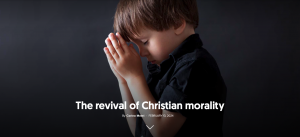Depression, sadness, melancholy, sorrow and despair are universal human states of mind that have given rise to distinct cultures, with nuances specific to different eras and places. These cultures have manifested themselves in everything from poems and songs to philosophical concepts. However, while we acknowledge the creativity that can arise from suffering, like a pearl formed from an oyster’s irritation, our focus is on helping people overcome their distress and emerge reborn.
We are preoccupied with these unhealthy states that render people dysfunctional and prevent them from enjoying life and evolving. However, we will not focus on their clinical manifestations; this is the domain of therapists, who are absolutely necessary for overcoming the impasse.
We will address the danger of developing clinical depression, a primarily cultural danger that takes many forms and develops over time. It is linked to everyday life, as well as to the way we develop as human beings, the way we see the world, the way we understand the meaning of life, the way we adapt to our social environment, the way we relate to our fellow human beings and transcendence, and the way we approach great experiences and challenges. All of this takes shape in thoughts, feelings, and behaviours. These can either be appropriate, harmonising us with our surroundings, or inappropriate, pushing us towards failure and psychological capitulation.
Depression is the result of these inadequacies and is always accompanied by feelings of helplessness and resignation. While the causes that trigger depressive states can be multiple, including romantic disappointments, social disillusionment, traumatic shocks, self-dissatisfaction, self-doubt, loss of a loved one, overwork, overwhelming responsibilities, guilt, threats, disasters, anxiety about illness, loneliness, ageing, loss of freedom or the prospect of death, these feelings of helplessness and giving up on problems seem to be the common denominator.
How is clinical depression described?“A mental disorder of moderate intensity that affects more and more people today. It is characterised by deep sadness almost every day, loss of pleasure in almost all activities, loss of appetite or continuous eating, insomnia or excessive sleeping, mental and physical restlessness or slowness, feelings of guilt and worthlessness, and thoughts of suicide. We don’t need to experience all of these symptoms to be depressed or at risk of developing depression.”[1] |
Cultural perceptions and influences
Recently, the annual political film festival Cinepolitica took place in Bucharest. The films, which are usually documentaries or docudramas, have a strong emotional impact and address significant historical events and pressing issues on a global scale. Examples include the Polish Solidarity movement, the Chernobyl explosion, the trial of Nazi leaders, the assassination of Yitzhak Rabin, North Korean camps and the lynching of an honourable citizen in a promiscuous community in modern-day Russia. Watching these films requires a great deal of endurance and mental strength to avoid depression. The dominant feeling is that people cannot hide from the tide of history anywhere, and that no one is free on a global level.
The festival offered an opportunity to explore how our spiritual “food” influences our mental state and even our lives. Therefore, to understand how a depressive state forms, we must look at its cultural origins: the events, readings and interactions that leave their mark on our ideas and emotions according to our own mental “map”. Let us recall Emil Cioran’s account of a French reader of his who committed suicide; however, the same pessimistic philosophy did not have the same effect on Cioran himself.
We need to exercise moral discernment, rather than just aesthetic judgement, in deciding which ideas to weave into the fragile fabric of our personality, which colours to give to our vision of the world and whom to consider as mentors or counterexamples. It is here that our values, aspirations and guiding principles will be formed.
In one sense, we will view melancholy as the happiness of being sad through the eyes of Victor Hugo; in another, we will heed the warning of Ecclesiastes that “a crushed spirit dries up the bones”. Our reaction will differ depending on whether we agree with Arthur Schopenhauer that to will is essentially to suffer, or with Roger Martin du Gard who says to cultivate your will because if you are able to climb, nothing will be impossible for you. Happiness will appear to us as either the pleasure of truly great people in making others happy, according to Blaise Pascal; a state of mind belonging only to idiots, according to Mario Vargas Llosa; a reward given to those who never sought it, according to Anton Chekhov; or knowing how to desire what you already have, according to Augustine.
Likewise, our optimism or pessimism may fluctuate depending on whether we accept the following reflections: “A pessimist is a well-informed optimist” (Grigore Moisil); “A smile at life is enough for everything to regain meaning…” (Constantin Noica); “Both optimists and pessimists contribute to society; the optimist invents the aeroplane” (George Bernard Shaw), or “If you cry because the sun has gone out of your life, your tears will prevent you from seeing the stars” (Rabindranath Tagore). These reflections, when contemplated, might coalesce into a homogeneous entity, bearing little consequence. Alternatively, they may be filtered through the cognitive and emotional filters of the mind and soul, according to unanticipated affinities. The depth or superficiality with which we approach them also has an effect.
The support of morality
When we look for the spiritual causes of depression, it is only natural that we look for possible cures in the same area of spirituality. Such a state is always the result of moral turmoil, whether that be disillusionment, moral guilt, despair, resignation, powerlessness in the face of adversity, the anguish of futility or a perceived lack of meaning in the world. The result is the disappearance of the will to live, which always has a moral cause.
In philosophy and morality, the works of the Stoics are considered a valuable reference point, and their approach can counteract negative, unhealthy thinking. Some authors have placed Stoic morality on the same level as, or even above, Christian morality. For instance, in the sixteenth century, Justus Lipsius remarked that the former slave and philosopher Epictetus had attained a level of spiritual elevation that few Christians had ever reached.[2] Sir John Lubbock ranked Epictetus’s Manual highest among all moral writings by non-Christians.[3] Goethe admitted that Stoicism resonated with him more than Plato or Aristotle.[4]
A comparative approach to the two types of morality—Stoic and Christian—reveals similarities and differences, which we will summarise below. Both moralities emphasise the values of human dignity and inner freedom, which should be preserved despite life’s hardships and temptations.
The golden rule of the Stoics can be summarised as follows: Recognising the impermanence and mortality of human life, we should align ourselves with nature and reason, adapting calmly to objective circumstances while mindfully seizing the opportune moment (Kairos) to act virtuously. Harmonising this with predestination can bring happiness. Seneca (4 BC–65 AD) believes that the wise man is above all mockery and defilement.[5] Epictetus (c. 50–130 AD) urges: “Don’t demand that things happen as you wish, but wish that they happen as they do happen, and you will go on well.”[6] The emperor Marcus Aurelius (121–180 CE), a contemporary of the early Christians, wrote, “Whatever may happen to you, it was prepared for you from all eternity; and the implication of causes was from eternity spinning the thread of your being.”[7]
According to the evangelists, the golden rule of Christian conduct was formulated in the first century by Jesus Christ Himself, connecting the New Testament with the Old Testament in terms of ideas and values: “So in everything, do to others what you would have them do to you, for this sums up the Law and the Prophets.”[8] This is clearly a more generous and freeing perspective on human interaction.
In the Stoic view, good is equated with cultivating virtue and acting on the things within our control: wisdom, willpower, character, the aspiration to perfection and the perception of objective realities. A key virtue in Stoic morality is self-will, through which a person can maintain their dignity and inner freedom, even in the face of life’s constraints and vicissitudes, and even at the cost of death or suicide. Thus, Marcus Aurelius urges, “Stop allowing your mind to be a slave, to be jerked about by selfish impulses, to kick against fate and the present, and to mistrust the future.”[9]
And Epictetus states: “Men are disturbed, not by things, but by the principles and notions which they form concerning things. Death, for instance, is not terrible, else it would have appeared so to Socrates. But the terror consists in our notion of death that it is terrible. When therefore we are hindered, or disturbed, or grieved, let us never attribute it to others, but to ourselves; that is, to our own principles.”[10]
Christian morality is based on the idea that doing good is a duty, but the nature of this duty reveals a much more generous ideal, that of love for God and for all fellow human beings, even enemies. The Apostle Paul argues that love fulfils the Law[11], and Jesus urges, “Love one another. As I have loved you, so you must love one another. By this everyone will know that you are my disciples, if you love one another.”[12]
The ideological and value contrasts between the two moralities are thus accentuated:
- Stoic morality exaggerates the power of the human will to rise above all challenges (“superbia”, or “Stoic pride”[13]), whereas Christian morality acknowledges the limitations of the human will, making Christ’s sacrifice necessary to help humanity resist temptations and sins through God’s grace. As Immanuel Kant wrote, what nature cannot do in us, grace accomplishes, provided only that we have used nature (i.e. our own powers) to the best of our ability.[14]
- Christ’s sacrifice is also motivated by love: “For God so loved the world that he gave his one and only Son, that whoever believes in him shall not perish but have eternal life.”[15] In this context of love, which transcends the mundane, man is never alone or helpless. However, in the Stoic context of a predominantly hostile world, human life can be heroic, but the resources for struggle are only internal. As the noun “stoicism” suggests, it is an attitude of resignation in the face of fatality and resistance to trials and dramatic struggle. However, this struggle is overshadowed by the much brighter and more hopeful perspective of Christianity, which is based on divine love for humanity. This love is incomprehensible to those who have not tasted it, as a French theologian remarked.[16]
- Stoic morality seems to be conceived as a guide to salvation and the avoidance or reduction of suffering in this imperfect world. In contrast, Christian morality offers a protective perspective through the figure of God as a heavenly father who watches over, guides, protects and counsels His children. There are biblical passages that would be incomprehensible from a Stoic perspective on divinity:”Cast all your anxiety on him because he cares for you.”[17] “Peace I leave with you; my peace I give you. I do not give to you as the world gives. Do not let your hearts be troubled and do not be afraid.”[18] “In this world you will have trouble. But take heart! I have overcome the world.”[19]
It is now obvious to anyone overcome by sadness, anxiety or depression that Christian morality can provide better support in their attempts to find solace and strengthen their hope through faith. All they have to do is reach out to receive this heavenly gift.




















